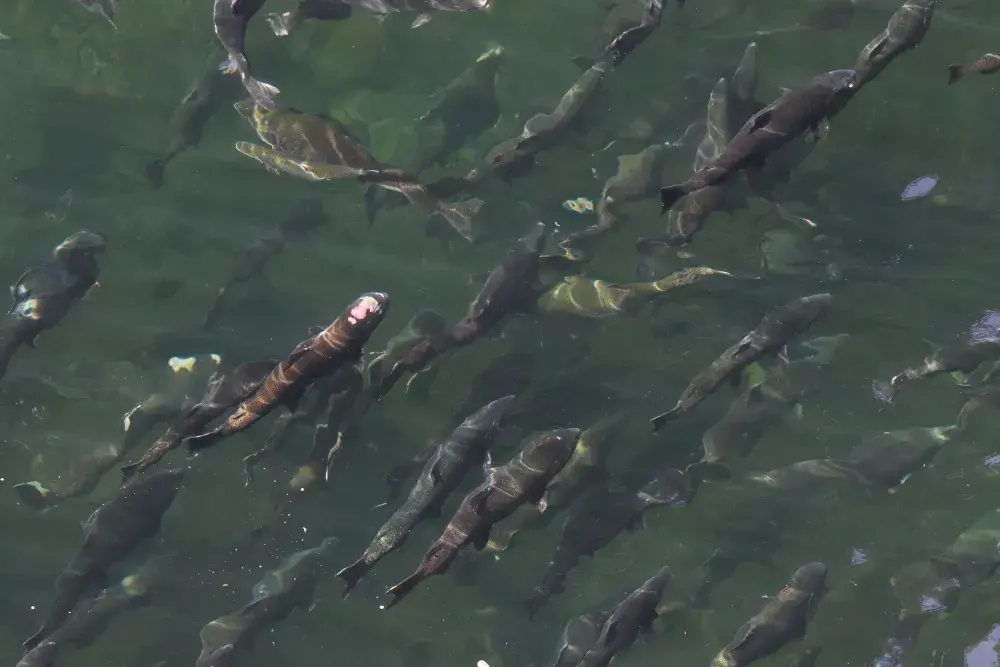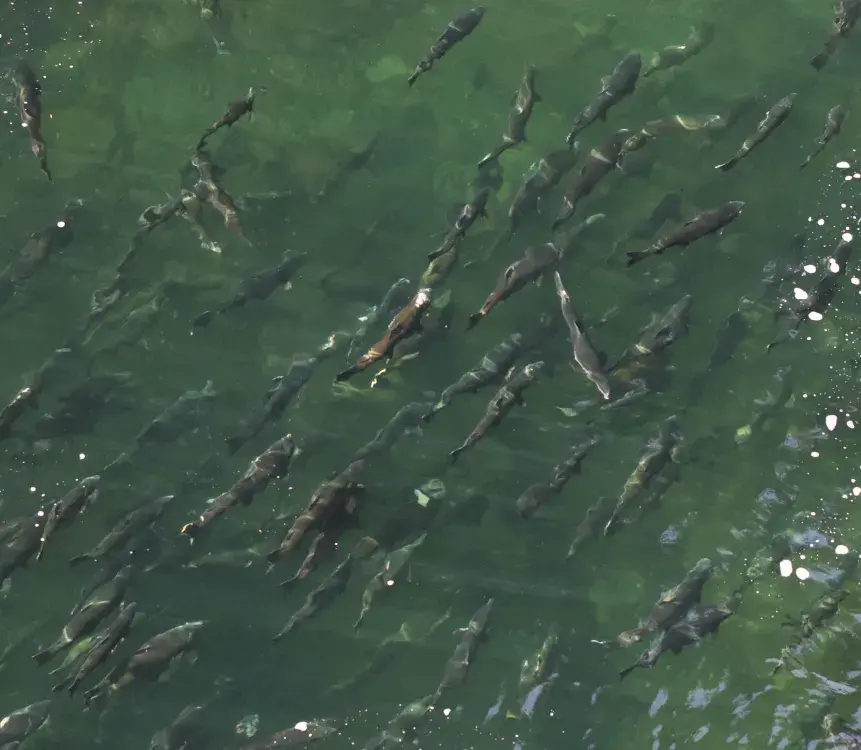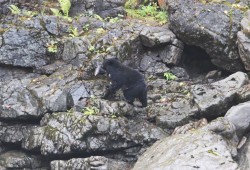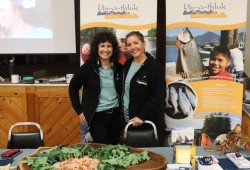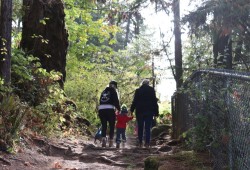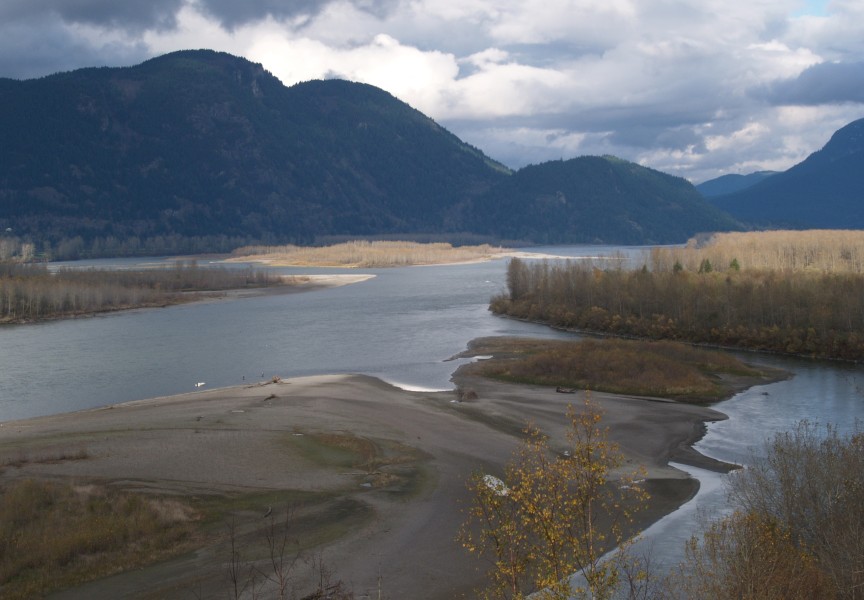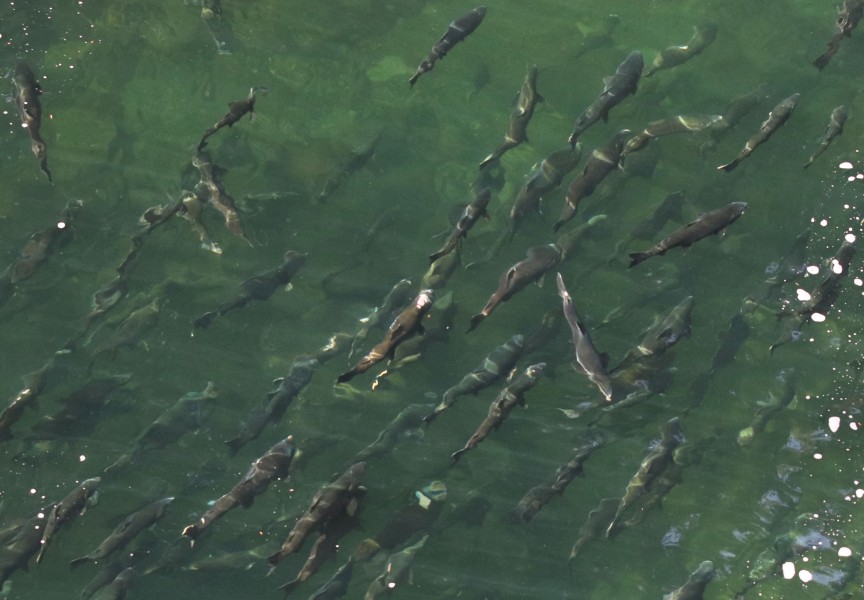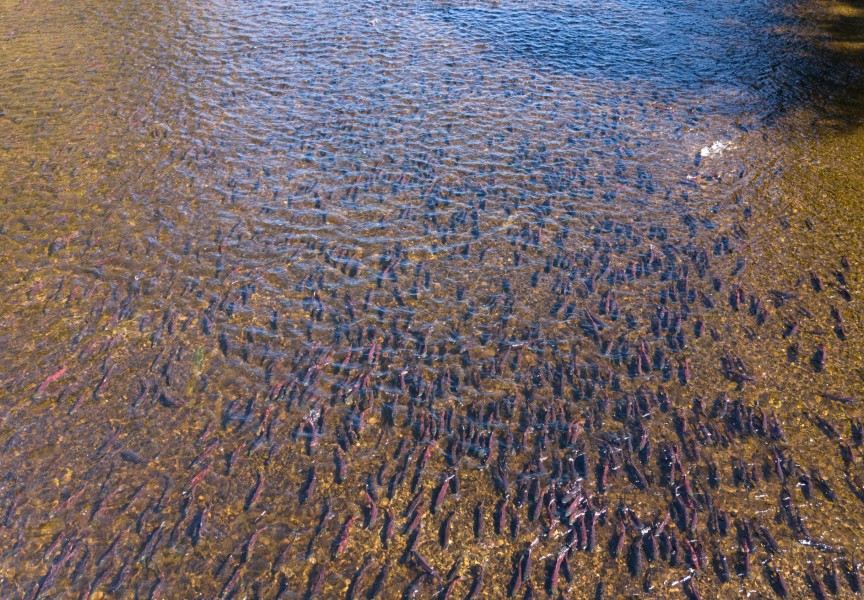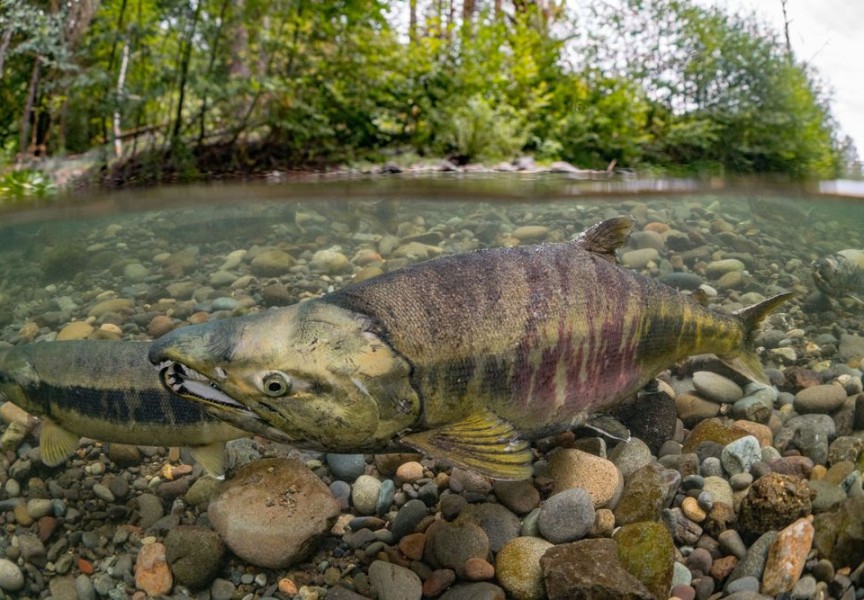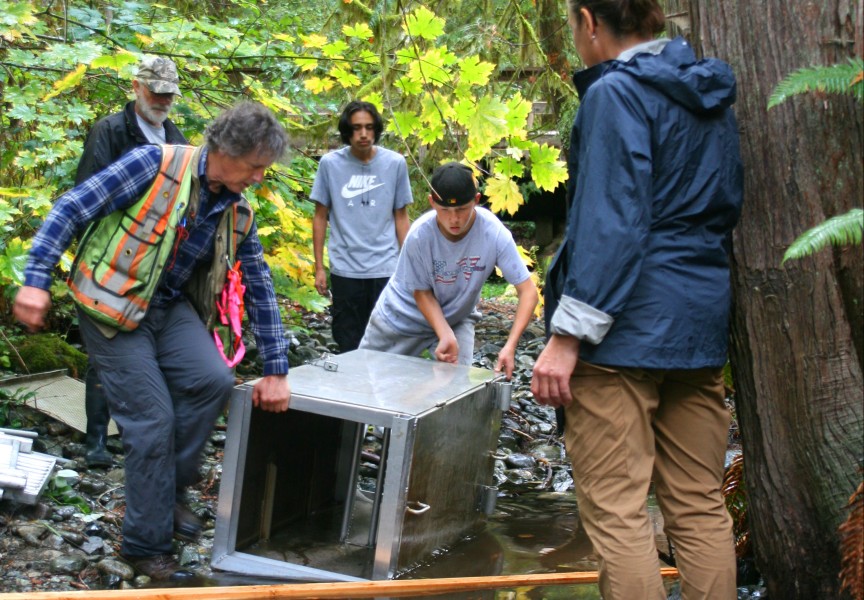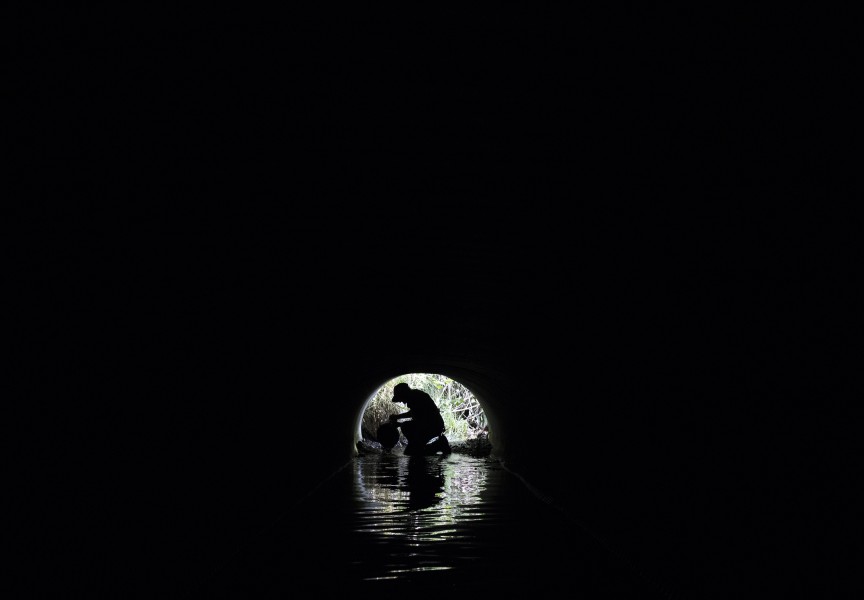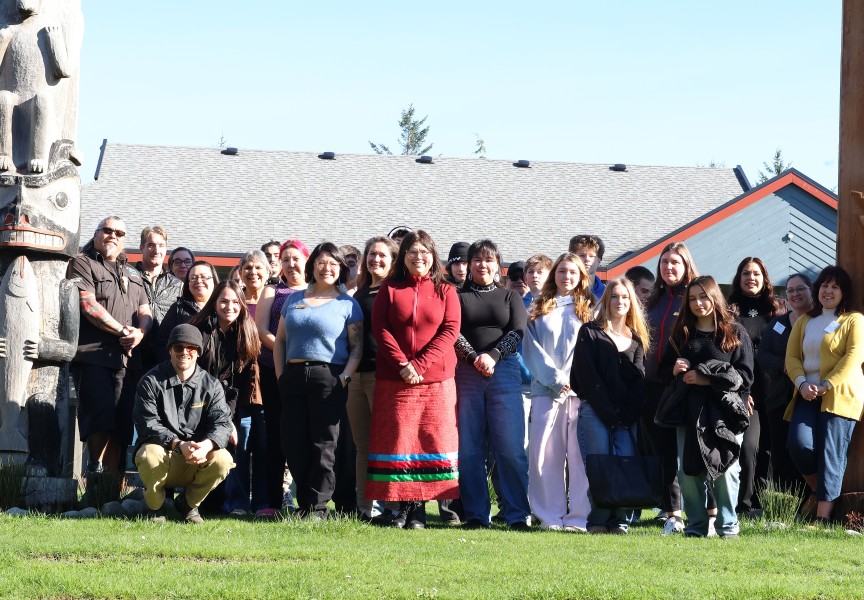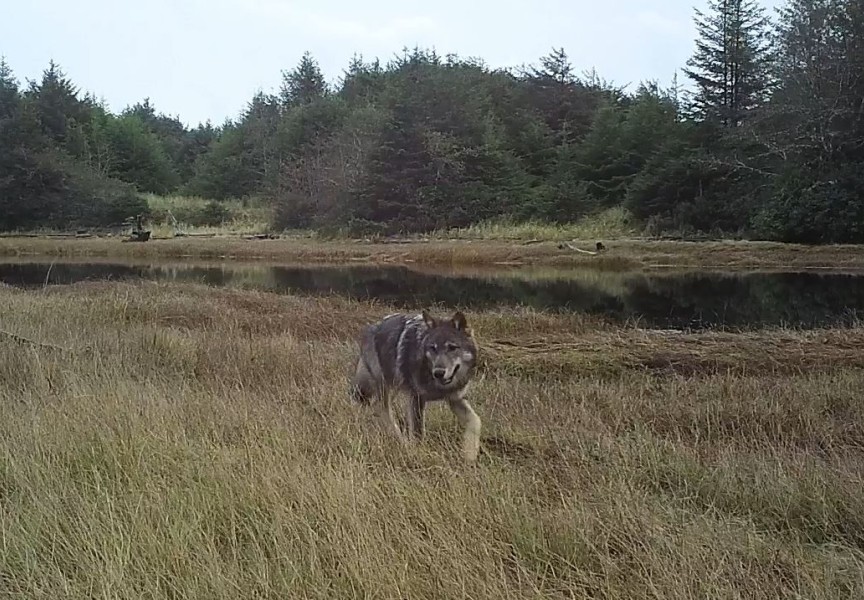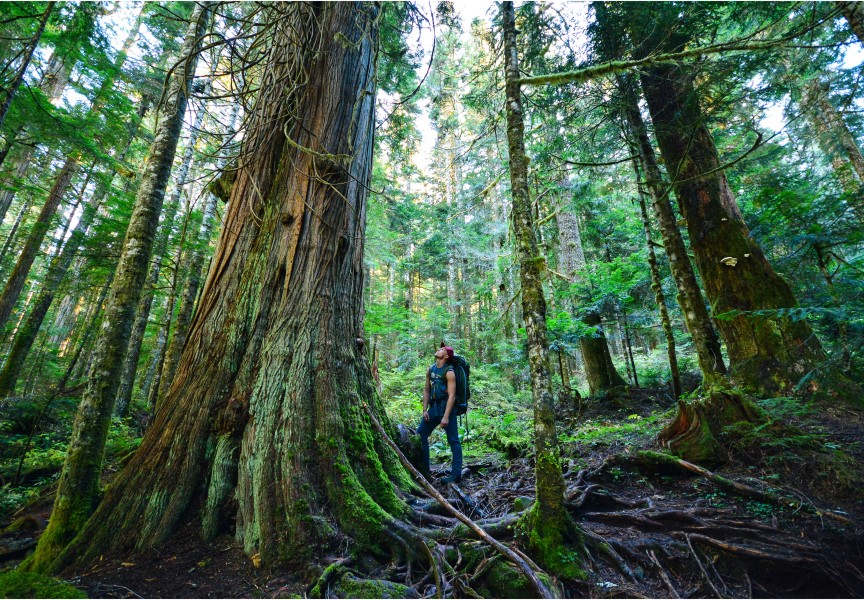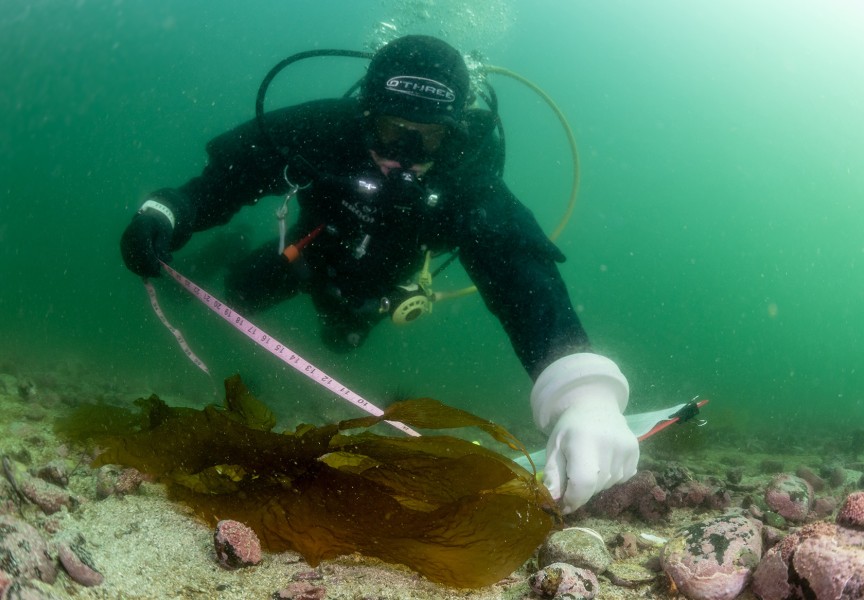On Sunday, Sept. 24, communities all over B.C. came together to celebrate their rivers. For Port Alberni, a shuttle ran between Stamp River Provincial Park, where people could view salmon pooling and bears feeding, and Beaver Creek Community Club where community organizations prepared educational activities for the youth.
Among the booths was Nuu-chah-nulth’s Uu-a-thluk. Filled with coloring books, Nuu-chah-nulth language, traditional cedar weaving and smoked salmon, Irine Polyzogopoulos, communications and development coordinator, and Danielle Burrows, protected areas planner, were in attendance eager to teach community members the importance of rivers.
“Hopefully, these are conversation starters,” said Polyzogopoulos, referring to some of the activities and information that filled their table. “We had casual conversations last year about some of the work that biologists do or why rivers are important to Nuu-chah-nulth.”
“And how they’re all really connected to salmon,” added Burrows. “As much as rivers are part of the forest ecosystem, they’re really a part of the whole connected piece.”
Burrows explained that while at Rivers Day she hopes to express Uu-a-thluk’s adopted principle, hishukish ts’awalk, everything is one, to families stopping at their booth. The aim is “creating that understanding of why rivers are important to our salmon and the rest of ecosystems,” said Burrows.
“It's not just your food, it's how you live, it's how you connect, it's how you interact and everybody's around,” said Polyzogopoulos. “[Rivers] are critical to that.”
Polyzogopoulos reflected on recent strategic planning renewal sessions with Ha’wiih and community members. Fisheries managers have noted that forestry practices affect rivers, which affect salmon - and in turn affect communities.
“It's so important that all of these areas are addressed,” said Polyzogopoulos, noting that fisheries are managed federally, while forestry is managed provincially. “We as Uu-a-thluk, we try to facilitate those discussions between nations, and government bodies and sort of act as that connection between the two.”
Among other community members was Ryan Price, local forestry professional, tabling for National Forests Week.
“We have a tendency as human beings to separate all those things, which are individual things and with individual characteristics,” said Price in talking about the connection between rivers and forests. “But the reality is that you can't necessarily take them apart, and so they're integrally reliant on each other.”
“Rivers affect everyone, and their health,” said Polyzogopoulos. “Protecting them is something that everybody should be concerned about.”

